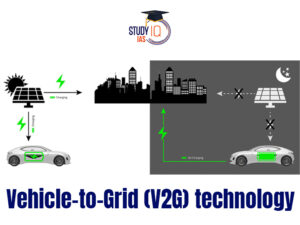Context: The article is discussing India’s focus on resource efficiency and circular economy as part of its G-20 presidency. It highlights how these strategies can play a crucial role in minimising the reliance on natural resources, reducing waste, and promoting sustainable design practices. The ultimate goal is to decouple resource utilization from economic growth and contribute to sustainable development and the realization of the Sustainable Development Goals (SDGs). The article emphasizes that there is a growing recognition of the importance of resource efficiency and circular economy strategies within the G-20 community. By transitioning from the traditional ‘take-make-dispose’ model to the ‘reduce-reuse-recycle’ model, India aims to contribute to a more sustainable future and encourage other G-20 nations to adopt similar approaches.
Decoding the Editorial
The article mentions that India has embraced four priority areas for the circular economy during its G-20 presidency:
- Circularity in the steel sector: This likely refers to promoting circular practices within the steel industry, such as recycling and reusing steel products to reduce the demand for new raw materials.
- Extended Producer Responsibility (EPR): EPR is a policy approach that holds manufacturers responsible for the entire lifecycle of their products, including their disposal and recycling. This can incentivize more sustainable product design and waste management.
- Circular bioeconomy: This refers to the promotion of a circular approach in the bioeconomy sector, which involves using renewable biological resources and reducing waste through recycling and reusing biomass.
- Establishing an industry-led resource efficiency and circular economy industry coalition: This suggests the formation of a coalition comprising industry stakeholders to drive resource efficiency and circular economy practices.
Moving to a circular economy:
- G-20 Member Countries and Net Zero Ambitions: Many G-20 member countries have committed to achieving net-zero emissions, indicating their dedication to mitigating greenhouse gas emissions and addressing climate change.
- Need for Higher Recycling Rates: To ensure responsible resource consumption and reduce environmental impact, there is a call to increase the current recycling rates of 15%-25%. This suggests a focus on promoting circular economy principles to minimise waste and enhance resource efficiency.
- Importance of Steel in Infrastructure Development: Steel plays a critical role in infrastructure development, and with the demand for steel expected to grow, its efficient utilisation becomes essential for sustainable economic growth.
- Greenhouse Gas Emissions from Steel Production: Globally, approximately 7% of energy sector emissions are attributed to iron and steel production. Transitioning to a circular steel sector is seen as a vital strategy to address emissions from this industry.
- Collaboration among G-20 Member Countries: Collaboration among G-20 member countries is emphasized, with a focus on knowledge sharing, technology co-development, and technology transfer to enable the circular transformation of the steel sector.
- Knowledge Exchange on Circular Economy in the Steel Sector: The “presidency document” mentioned aims to facilitate knowledge exchange on the circular economy within the steel sector. It serves as a blueprint for achieving net-zero emissions, reducing resource utilization, and minimizing wastage in the steel industry.
- Emphasis on Extended Producer Responsibility (EPR) Framework: The article highlights the significance of the EPR framework in integrating circularity throughout the value chain. EPR holds manufacturers responsible for the entire lifecycle of their products, encouraging sustainable practices.
- Sharing Best Practices: As different countries have implemented different EPR models, the G-20 member-countries are encouraged to share best practices. This sharing of knowledge is intended to accelerate the transition to a circular economy across different nations.
Recycling, a bioeconomy and biofuels:
- Effective Implementation of Extended Producer Responsibility (EPR):
-
- India has taken significant steps in implementing the EPR framework, which has resulted in the growth of the recycling infrastructure and the establishment of a centralized waste collection system.
- With a large number of registered Producers, Importers, and Brand Owners (PIBOs) and plastic waste processors on the central EPR portal, India boasts one of the largest EPR frameworks globally.
- Focus on Bioeconomy and Biowaste Management:
-
- The consumption of biological resources in G-20 member countries has increased significantly since 1970.
- Biowaste, including municipal and industrial waste and agricultural residue, has become a global issue due to burning, leading to pollution, biodiversity loss, and global warming.
- India recognizes the potential of biowaste to serve as valuable primary raw materials and viable substitutes for mineral resources in a circular bioeconomy approach, reducing the need for extracting virgin resources.
- Adoption of Biofuels:
-
- The Government of India has been actively promoting the adoption of biofuels. Initiatives like the Pradhan Mantri JI-VAN Yojana support integrated bio-ethanol projects that use waste feedstock such as crop residues and municipal solid waste to produce second-generation (2G) bioethanol.
- India has also made it mandatory for coal-burning thermal power plants to blend 5% biomass pellets with coal.
- Various schemes like GOBAR Dhan and SATAT are encouraging the conversion of organic waste into compost, biogas, and biofuels to promote sustainable agriculture, rural livelihoods, and reduce pollution.
- Contribution to Sustainable Development:
-
- India’s focus on recycling, bioeconomy, and biofuels aligns with the principles of sustainable development.
- These initiatives not only help in reducing waste and environmental pollution but also promote the efficient utilization of resources and contribute to India’s sustainable growth.
Industry Coalition:
- Importance of Industry Coalition: India recognizes that industries play a crucial role in advancing resource efficiency and circular economy practices. To achieve progress in these areas, India envisions the establishment of an industry coalition. This coalition is intended to bring together various sectors and stakeholders to collaborate on resource efficiency, circular economy practices, and related initiatives.
- Objectives of the Industry Coalition: The industry coalition aims to achieve several key objectives, including:
-
- Enhanced Technological Collaboration: Fostering collaboration between industries to share knowledge, expertise, and technologies for sustainable practices.
- Building Advanced Capabilities: Developing advanced capabilities across different sectors to promote resource efficiency and circular economy practices effectively.
- Mobilizing De-risked Finance: Facilitating access to finance that supports sustainable projects and initiatives, reducing risks associated with circular economy investments.
- Proactive Private Sector Engagement: Encouraging active involvement and engagement of the private sector in adopting and promoting resource-efficient and circular practices.
- G-20’s Role in Addressing Global Challenges: The G-20 is acknowledged as a global platform that plays a significant role in addressing critical issues and presenting solutions through collaboration among its member countries.
-
- Resource efficiency and circular economy are recognized as key solutions in tackling triple planetary challenges, which likely refer to environmental, social, and economic challenges facing the world.
During its G-20 presidency, India has placed extensive focus on resource efficiency and circular economy approaches. These strategies are seen as promising pathways toward creating a more sustainable and resilient future.


 SSC CGL Exam 2025 Apply Online Starts Ap...
SSC CGL Exam 2025 Apply Online Starts Ap...
 Daily Quiz 19 April 2025
Daily Quiz 19 April 2025
 Vehicle-to-Grid (V2G) Technology and its...
Vehicle-to-Grid (V2G) Technology and its...





















